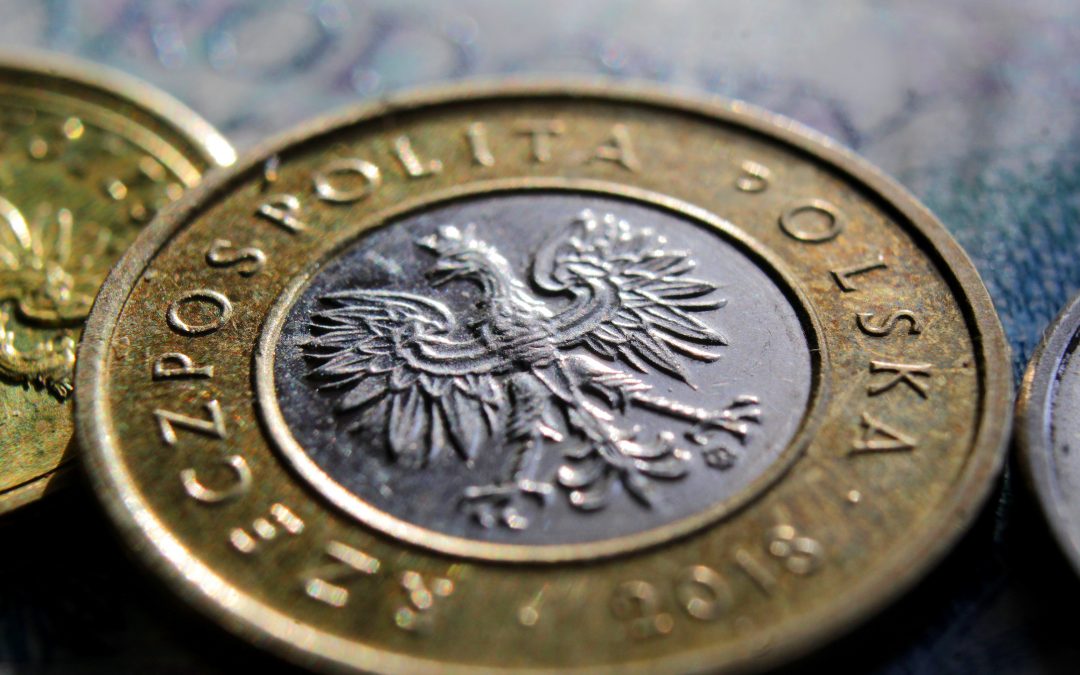A team of researchers in Poland is preparing to launch a pilot programme to test the impact of universal basic income (UBI) – a guaranteed payment made to all residents regardless of their wealth or economic activity – in an impoverished part of the country.
In the experiment, thousands of residents of the northeastern Warmian-Masurian province living along the border with the Russian exclave of Kaliningrad will receive monthly payments of 1,300 zloty (€280).
The team behind the experiment, which includes two sociologists from the Adam Mickiewicz University in Poznań, has reached agreements with the Association of Warmia-Masuria Borderland Municipalities and the Association of Polish Cities.
Źródło: https://t.co/oNCmFhdE68
— Marek Szymaniak (@Marek_Szymaniak) May 18, 2022
“The idea is to see how such a solution works in a situation where we are dealing with an extremely poor region with extremely high social problems,” one of the researchers, Maciej Szlinder, told broadcaster RMF yesterday.
He noted that the north of the Warmian-Masurian, which was previously the site of communist state-owned farms, was strongly affected by the economic transformation after 1989 and also by the closure of the local border traffic with Russia – a major source of income for locals – in 2018.
Szlinder, who as well as being an academic is a prominent figure in the left-wing Together (Razem) party, is a longstanding advocate of UBI, which has been the subject of his research.
He told RMF that a similar experiment run in poor rural regions in India 10 years ago showed promising results, while more recently a programme was run in Finland and last year a small-scale experiment was launched in Germany.
The planned Polish programme would see a minimum of 5,000 residents receive the monthly payments for two years, though that could be scaled up to 31,000 depending on the level of funding.
The payment of 1,300 zloty envisaged within the framework of the experiment was determined on the basis of the so-called “social minimum”, the minimum income needed to meet the most basic needs.
Results from Finland’s #UBI program: “small increase in employment, significantly boosted multiple measures of the recipients’ well-being, and reinforced positive individual and societal feedback loops.” https://t.co/0gwmmOZxGJ
— Evelyn Yang (@EvelynYang) September 24, 2020
“But let’s remember that the payment of 1,300 zloty was our initial proposal, related to the draft pilot programme at the end of last year when inflation was not so high and we did not know how long it would last,” the researcher told RMF FM.
Inflation in Poland has significantly accelerated over the last year, hitting 12.4% in April, the highest level since 1998. According to new forecasts released by the European Commission this week, inflation in Poland will be 11.6% this year, the fourth-highest figure in the EU.
UBI has not yet been introduced by any country in its complete form. In Alaska, citizens receive a small payment akin to UBI but it is paid only once a year.
Inflation in Poland will be 11.6% this year, the fourth highest figure in the EU, according to new @EU_Commission forecasts released today.
Poland's economy is expected to grow 3.7%, the sixth highest figure in the bloc.
Full data here: https://t.co/asN54zqDgJ pic.twitter.com/DqJh0naNpq
— Notes from Poland 🇵🇱 (@notesfrompoland) May 16, 2022
Szlinder also points to what he sees as flaws in the Finnish UBI experiment, in which only people previously registered as unemployed were enrolled and unemployment laws were changed during the experiment, making it difficult to compare the results of the experiment with the control group.
“[UBI] is a benefit which is supposed to be granted to all citizens or residents of a given area,” said Szlinder. “It is supposed to be unconditional, i.e. we do not impose any conditions, for example that someone must have paid contributions or must have worked or attended training.”
“That is why we are proposing this experiment because it brings us closer to…checking at least in some respects what effects the introduction of a basic income may have,” said Szlinder.
Szlinder: Dochód podstawowy mógłby być największą reformą od początku transformacji https://t.co/hORMZFQGNe
— Fakty RMF FM (@RMF24pl) May 18, 2022
Main image credit: Gosia K./Pixabay

Alicja Ptak is deputy editor-in-chief of Notes from Poland and a multimedia journalist. She has written for Clean Energy Wire and The Times, and she hosts her own podcast, The Warsaw Wire, on Poland’s economy and energy sector. She previously worked for Reuters.



















